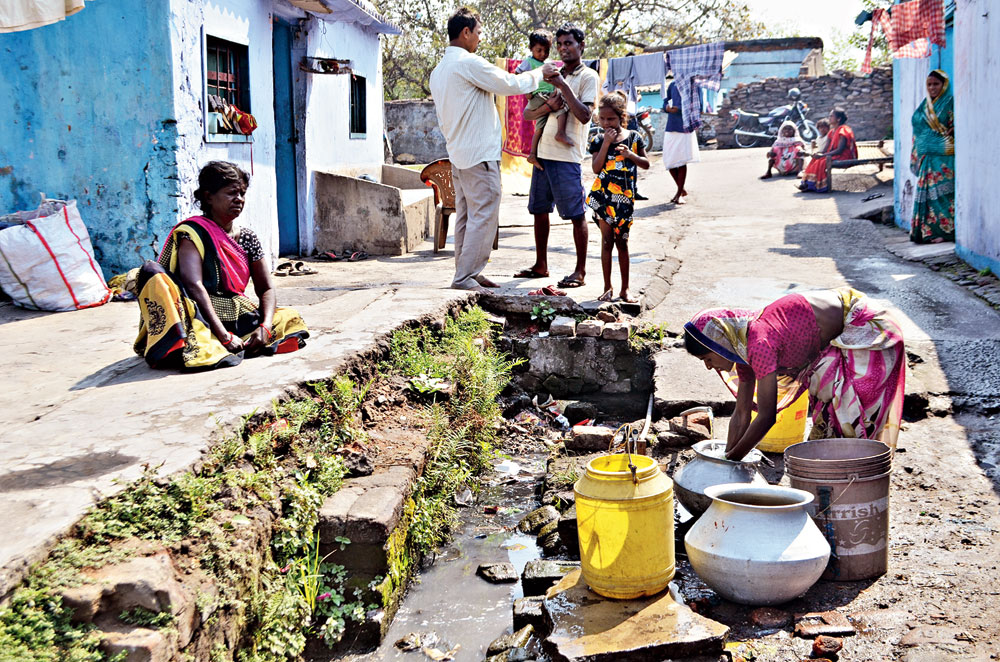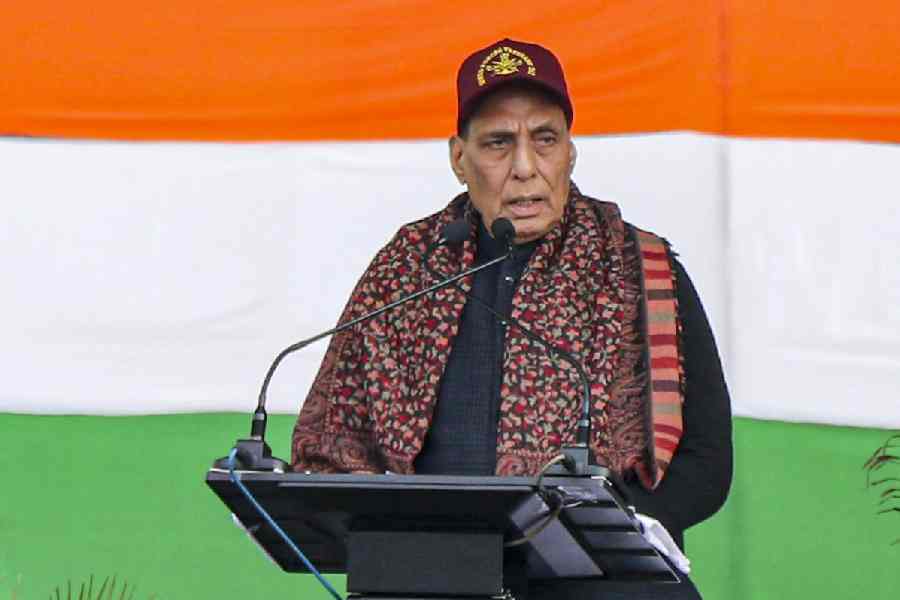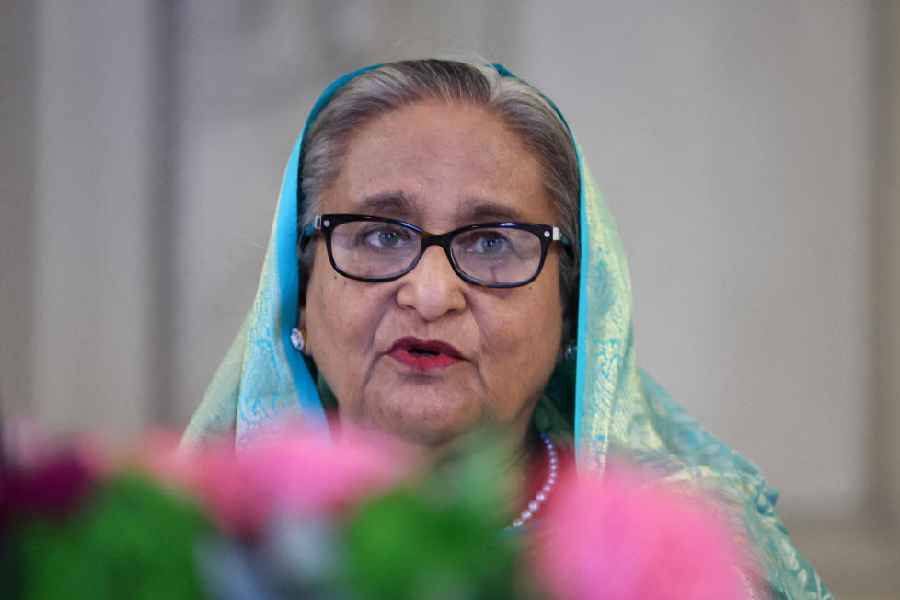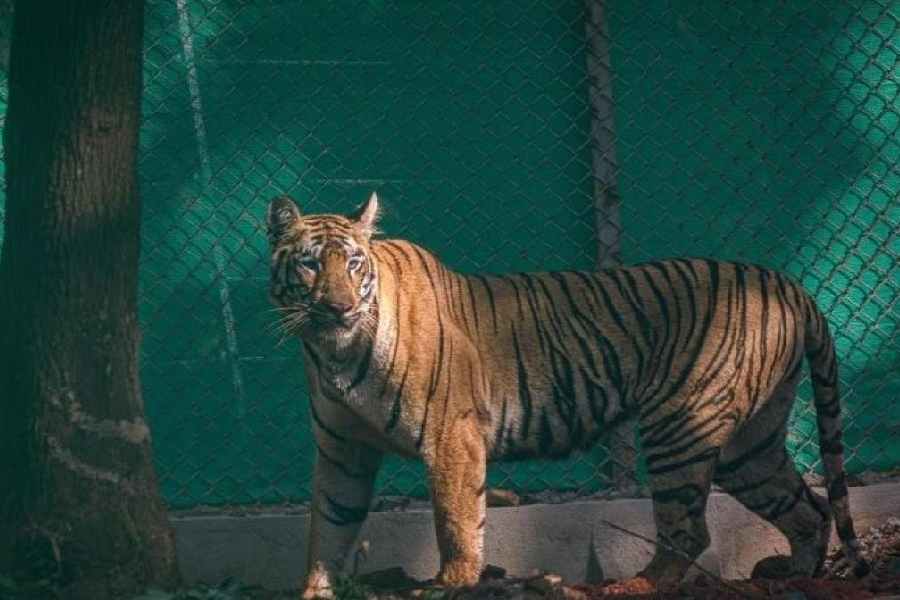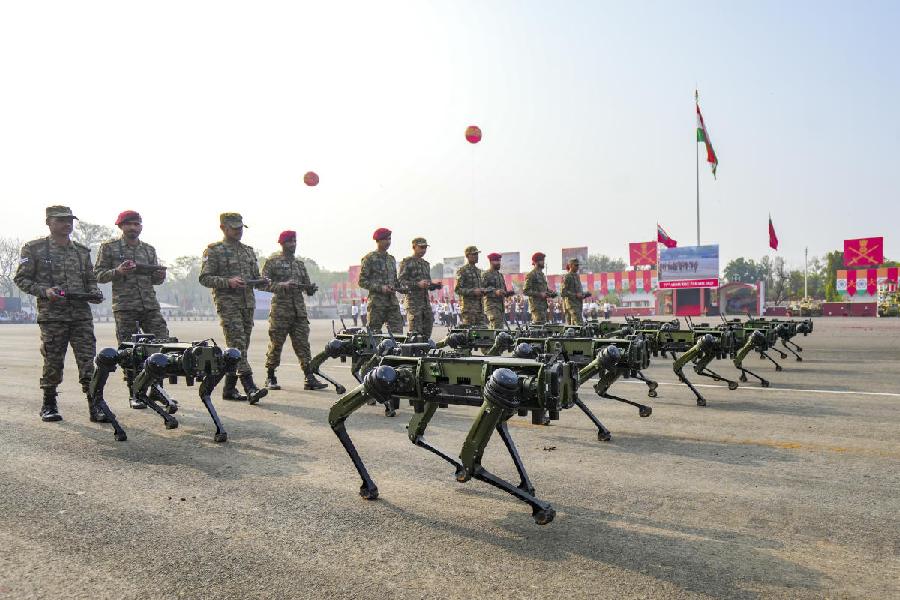For residents of Mohribandh area of Ghanudih in Jharia, less than 10km from the district headquarters, elections are all about unfulfilled promises.
Around 14 families, whose houses were damaged on August 19, 2017, in a subsidence triggered by an underground fire in Ghanudih colliery of BCCL, are still waiting to be shifted to a safer place.
“When politicians visited us before 2014 election, they promised us good houses and employment. However, after the tragedy struck us in August 2017, none of them cared to enquire about our well-being. This time, we will ask them why we should vote in their favour if they are not capable of fulfilling their promises?” said Shanti Bhuini (60), a widow and a resident of Mohribandh.
Shanti lost her single-storey house along with all the utensils, some cash and a few silver jewellery in the subsidence.
“We are compelled to live in a house that belonged to a family that left the area following the incident,” Shanti, who lives with his daily wage earner son Manik Chandra Bhuian and daughter-in-law Sulena Devi, said.
Shanti’s neighbour Rinku Rawani (30), a labourer at the coal loading site of BCCL’s Golakdih colliery in Jharia¸ said the government’s faulty policy was more biased towards well-to-do families.
“Others like us¸ who are not capable of shifting to safer places on our own, are compelled to live at the same place where a similar incident may occur anytime,” Rinku said.
Shankar Rawani, who works as a labourer at construction sites, couldn’t agree more.
“While 30-35 families of Mohribandh have been shifted to quarters built by Jharia Rehabilitation and Development Authority (JRDA) about 4km from here, others have forcibly acquired vacant houses of BCCL employees at Mukunda Open Cast Project colony about 2km from here. However, around 200 families are still compelled to live in Ghanudih, including around 30 in Mohribandh, for reasons best known to the district administration, JRDA and BCCL authorities,” Shankar said.
Umesh Ram (52), a resident of Laltengang, less than 200 metres from Mohribandh, said they had been promised houses at a safer place several times since the subsidence. They were even asked to provide their photo ID cards after the demographic survey, but the entire exercise, he alleged, was an exercise in futility.
“During monsoon, we cannot sleep at night for fear of subsidence,” Umesh, who works as a driver, said.
Notably, the quarter allotment process for around 600 families living in Mohribandh and its surrounding areas like Ghanudih, Idli Patti, Kujama, Mukunda Open Cast Project colony was hindered by the lack of documents, including the photo ID cards provided by the JRDA, to the displaced.
Confusion over whether people living in the areas before 2004 or 2009 were eligible for rehabilitation also delayed the process.
“We generated data of around 1 lakh families through a revised survey conducted between September 24 and December 24, 2018, from the different fire-affected sites. All will be rehabilitated gradually. Plans are being chalked out for those who can’t be accommodated under the Jharia master plan. They are likely to be relocated under some existing government schemes like Pradhan Mantri Awas Yojana,” JRDA in-charge (rehabilitation and resettlement) Azfar Hasnain said.

